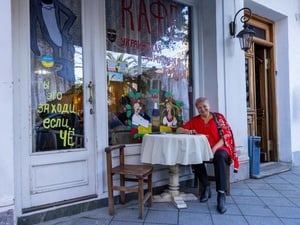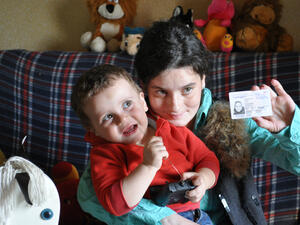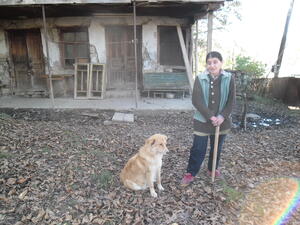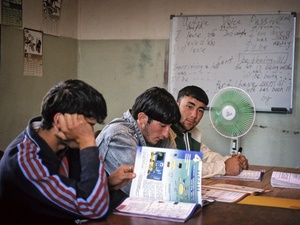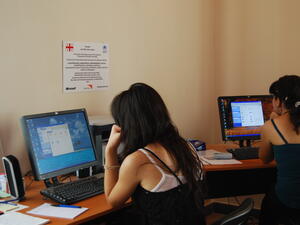Georgia: Massive returns to buffer zone
Georgia: Massive returns to buffer zone
Over the past week, UNHCR has witnessed a massive return of Georgian internally displaced people (IDPs) to their villages in the buffer zone around the Georgian breakaway province of South Ossetia.
Our teams monitoring the returns report that more than 20,000 people have headed back since the withdrawal of the Russian troops from the buffer zone on 8 October. Most of these people are returning to their homes and villages in the buffer zone or checking to see if conditions are safe and acceptable. We are warning all of those going back to watch out for mines and unexploded ordnance. Some casualties have already been registered.
Earlier this week, the UNHCR tent camp in the Georgian town of Gori, south of South Ossetia, was closed after the last of the displaced left for their homes in the buffer zone, or were relocated to collective centres. We have started dismantling the tents and the camp's infrastructure.
Out of 133.000 internally displaced people registered by Georgian authorities during the conflict in August, we estimate that more than 78,000 have returned to their homes across Georgia. According to Russian authorities in North Ossetia, fewer than 2,000 people remain there out of some 30,000 who fled from South Ossetia in August.
In addition to assisting the returnees with tools and reconstruction materials, UNHCR is rapidly moving on winterization programmes designed to improve the living conditions for some 35,000 internally displaced people through repairs and rehabilitation of collective centres and damaged houses. We hope to have this done before the winter sets in. Most of these 35,000 IDPs are already in collective centres run by the Georgian government. We expect more people will be seeking shelter in the centres as host families they are currently staying with run out of resources, or the IDPs deplete their funds and can no longer afford to rent. In a race against time, we are also distributing stoves and firewood as well as additional blankets, mattresses, bed sheets and kitchen stoves.
UNHCR teams in Georgia also plan to convert unused public buildings into apartments for some 5,000 persons who cannot return to their homes in the long term.
We urgently need additional funds to ensure continued assistance, winterization and reconstruction programmes for the newly displaced population in the Caucasus region. Our part of the revised Georgia Crisis flash appeal amounts to US$44.9 million for the next six months. This will cover UNHCR's protection, shelter and assistance programmes for those displaced during the conflict in August. So far, we have received only 31 percent of the needed funds.


